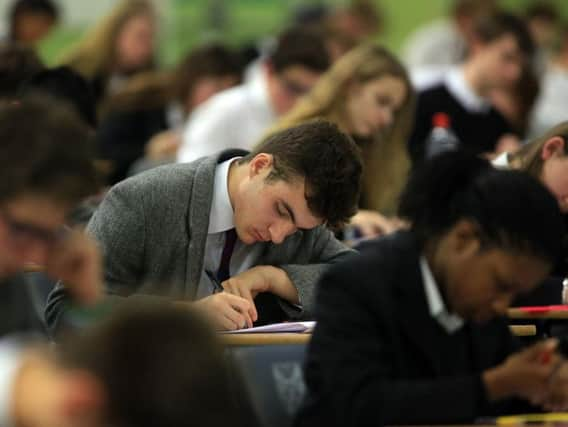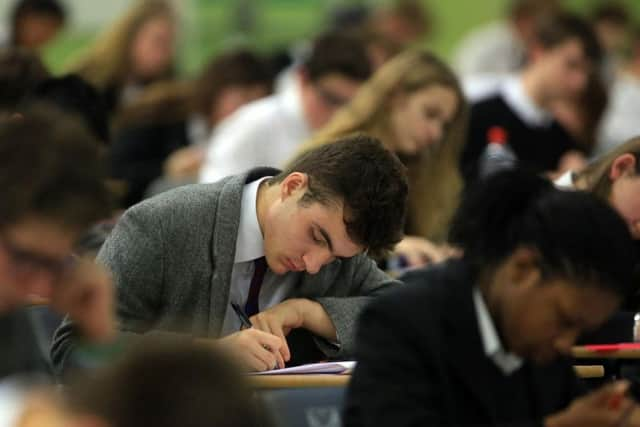GCSE RESULTS: Pupils praised for rising to the challenge of exam reforms


Headteachers today praised pupils and said they had risen to the challenge.
Andrew Waller, headteacher at Carr Hill High School in Kirkham, said: “This has been a challenging couple of years for students and staff as they prepared for the new reformed GCSEs in most subjects.
Advertisement
Hide AdAdvertisement
Hide Ad"These exams are designed to be tougher than previous GCSEs but students have risen to the challenge and today we can celebrate their success.


"68 per cent of the year group achieved the new standard pass (grade 4 or above) in maths while 62 per cent achieved this in English.
"We have seen really pleasing results in many other subjects including all the sciences, PE and sport, the visual and performing arts, textiles and computing."
GCSEs in England have undergone sweeping changes as part of education reforms that began under the coalition government.
Advertisement
Hide AdAdvertisement
Hide AdThese changes are now being felt in schools and colleges across Blackpool, Wyre and Fylde, with one of the biggest being a new grading system.
Traditional A* to G grades have been replaced with a 9 to 1 system, with 9 the highest mark.
English and maths GCSEs - core subjects taken by all teenagers - were the first to move to the new system, with numerical grades awarded for these courses for the first time last summer.
This summer another 20 subjects will have the new grades awarded for the first time, including core academic courses such as the sciences, history, geography and modern foreign languages.
Advertisement
Hide AdAdvertisement
Hide AdThe move is part of a wider reform of exams which has seen a complete overhaul of the content and structure of GCSEs.
But headteachers have raised concerns that the new grading system sends a "demoralising message" to students who are likely to score lower results in their exams.
Malcolm Trobe, Association of School and College Leaders general secretary, said: "The Government's intention is that the new system provides greater differentiation between grades.
"For example, it replaces A* and A with three grades, 7, 8 and 9.
Advertisement
Hide AdAdvertisement
Hide Ad"Our concern, however, is over those pupils at the other end of the scale who are taking exams which are harder than their predecessors and who have been told by the Government that a grade 4 is a 'standard pass' and a grade 5 is a 'strong pass'.
"That is a very demoralising message to those who achieve grades 1, 2 and 3, and the new system does not work very well for them at all.
"These young people have completed demanding programmes of study and we need to find a better way to credit their achievements."